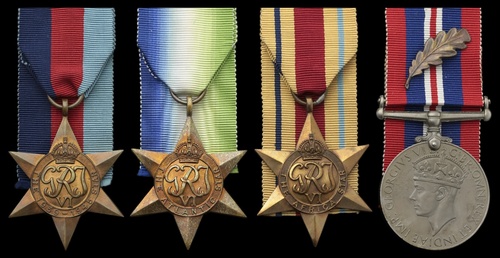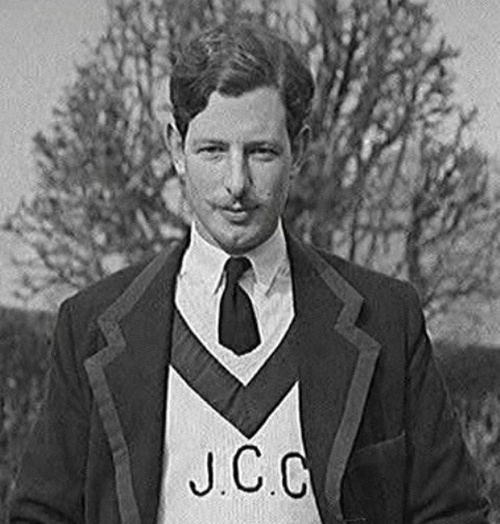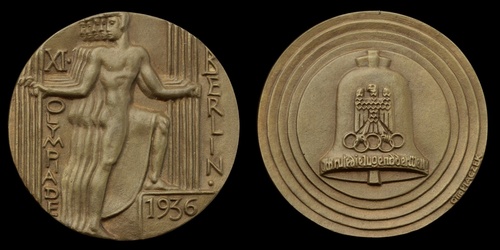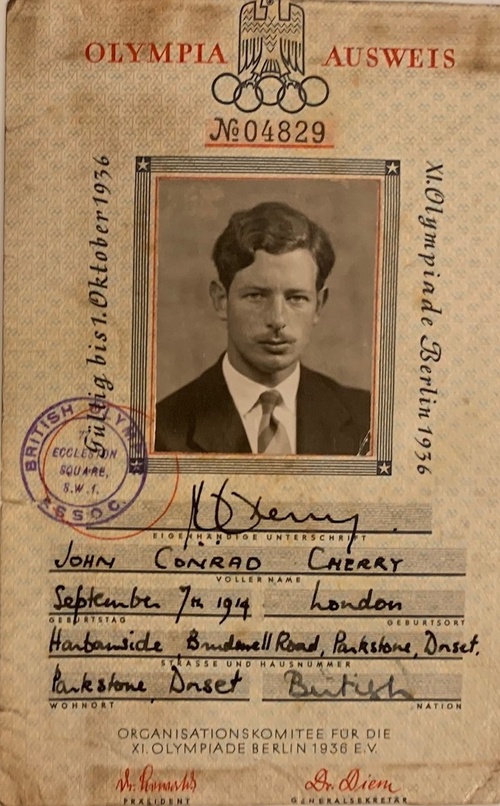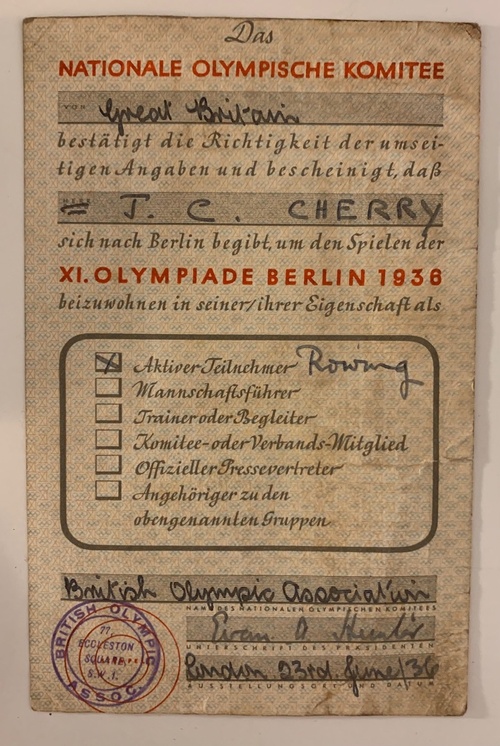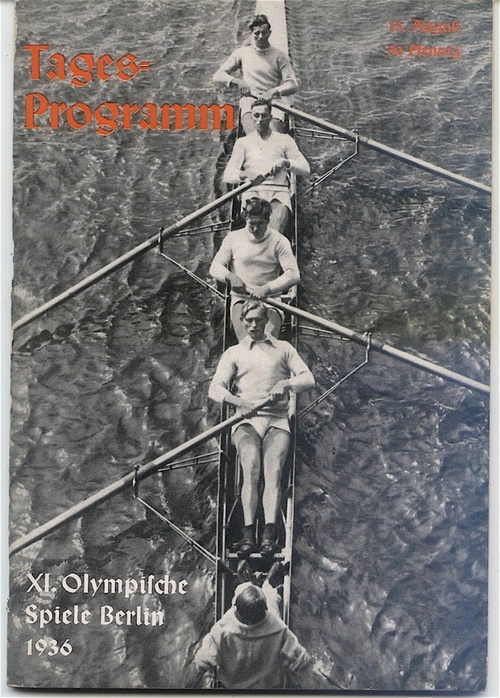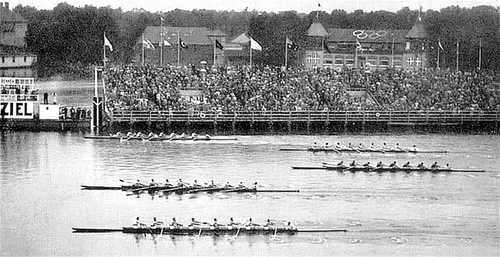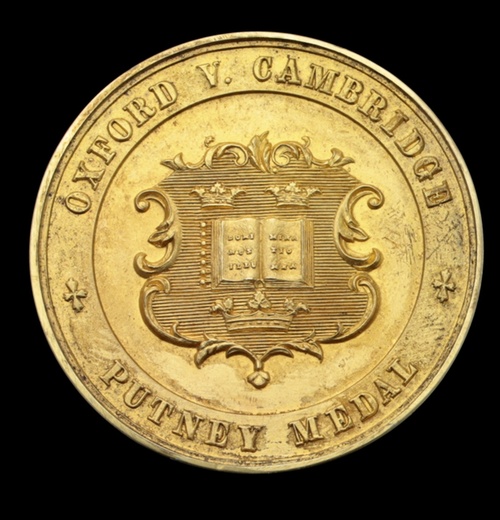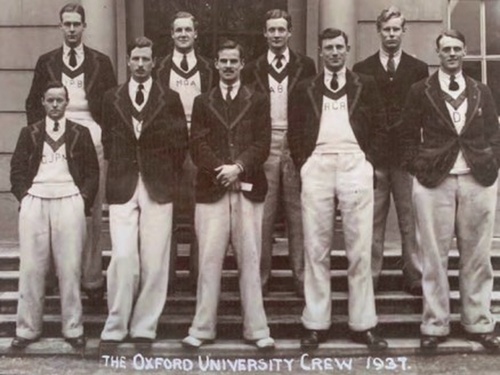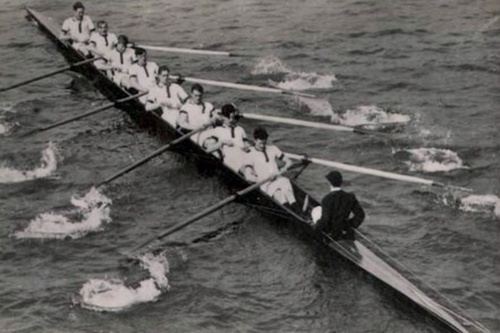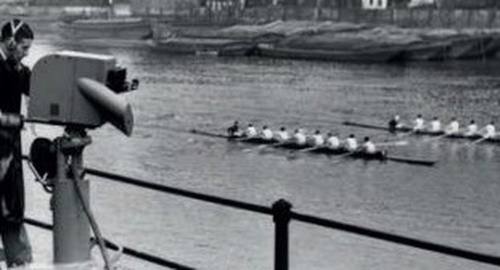Auction: 22003 - Orders, Decorations and Medals
Lot: 420
The important 1936 Berlin Olympics, Boat Race and Second World War group of awards to Lieutenant J. C. 'Con' Cherry, Royal Naval Volunteer Reserve, 'perhaps the finest rower of his generation'
A participant in some epic pre-war Boat Races for Oxford and the Dark Blues, his fellow oarsmen and friends included the likes of 'Jock' Lewes of S.A.S. fame and 'Dinghy' Young of 'Dambusters' fame
But it was probably Cherry's part in the famous 1939 Berlin Olympics that proved his most memorable, for the Nazis appear to have deliberately provided consistent 'noise pollution' outside his accommodation at the Police Cadet Training Academy in Kaiser Wilhelm Strasse in Berlin-Köpenick:
'One night it was brown-shirted storm troopers singing and parading past in hobnailed boots. Another it was military night manoeuvres - roaring motorcycles with sidecars, trucks with glowing green night-lights in their cabs, caissons carrying field artillery - all rattling past under the street lamps … '
S.S. troops also put in a noisy nocturnal appearance but to their credit Cherry and his fellow sleep-deprived 'Eights' made it through to the finals and managed a respectable 4th place
In common with his friends and fellow oarsmen 'Jock' Lewes and 'Dinghy' Young, Cherry quickly joined-up in 1939, winning a 'mention' for his gallantry as a 'Wavy Navy' officer when H.M.S. Manxman was severely damaged by a torpedo strike in the Mediterranean in late 1942
Tragically, however, he did not survive the loss of H.M.S. Welshman when she fell victim to the U-617 east of Tobruk in February 1943, the command of Albrecht Brandi, one of just three U-Boat commanders to be awarded the Knight's Cross with oak leaves, swords and diamonds
1939-45 Star; Africa Star; Atlantic Star, War Medal 1939-45, with M.I.D. oak leaf, extremely fine (4)
John Conrad Cherry - or 'Con' to his friends and comrades - was born at Paddington, London on 7 September 1914. Having then been educated at Westminster, he went up to Brasenose College, Oxford as the Heath Harrison Minor Exhibitioner in 1933.
A hugely talented oarsman, Cherry rowed in the Brasenose VIII from 1934-38 and was first selected for the Oxford VIII for the Boat Race in 1936, tasting defeat on the first attempt, in a boat which included future Special Air Service legend J. S. 'Jock' Lewes, a founding member of the S.A.S. who was killed in action during the Second World War. That year he was also selected for the British VIII which went to Hitler's Nazi Germany to represent the nation in the legendary 1936 Olympics.
The Berlin Olympics 1936
On arriving in Berlin in early August 1936, Cherry and all the competing international oarsmen were accommodated at the Police Cadet Training Academy in Kaiser Wilhelm Strasse in Berlin-Köpenick. Daniel James Brown, the author of The Boys in the Boat, later wrote:
'The building - all glass, steel and concrete - was brand new and so modern in design that to latter-day eyes it would look as if it had been built in the 1970s or 1980s rather than the 1930s.'
The building had been commissioned by the Prussian Construction and Finance Directorate, designed by architect Conrad Beckman and completed in 1931. It still stands today and is now the Teptow and Köpenick Tax Office.
The rowing competition itself was held at Grünau Regatta Course on Langer See ('The Long Lake') between 12-14 August 1939.
Meanwhile, back at the Police Cadet Training Academy in Kaiser Wilhelm Strasse in Berlin-Köpenick, 'noise pollution' became a serious issue, interrupting the exhausted rowers' sleep. Almost every night there was some kind of disturbance in the cobblestoned street below their windows. One night it was brown-shirted storm troopers singing and parading past in hobnailed boots. Another it was military night manoeuvres - roaring motorcycles with sidecars, trucks with glowing green night-lights in their cabs, caissons carrying field artillery - all rattling past under the street lamps.
In fact, as recalled by Jack Beresford, a member of the British rowing contingent, on the night before his part in the Double Sculls final, S.S. troops created a major din by marching and parading outside the academy. Happily, however, if it were a deliberate ploy, it failed: he and his rowing partner took Gold.
Cherry and his crew also won a place in the finals and managed a praiseworthy 4th place in the Eights.
Boat Race: Cherry and the 'Dark Blues' twice take the riband
Cherry was a key member of the Boat Race crew in 1937, when 'Jock' Lewes - the President - gave up his seat in order that the strongest VIII took to the water. That year they broke the historic losing streak of thirteen years to deliver the Dark Blues victory by three lengths in what was described as 'one of the most exciting races ever seen on the tideway'.
Cherry was convinced to stay on another year to return for a second victory in the 1938, having been handed the Presidency of the O.U.B.C. by Lewes, besides being made President at the Leander Club the same year. That year the No. 2 Seat was filled by H. M. 'Dinghy' Young, later Squadron Leader Young, who was killed in action while piloting of 617 Squadron's Lancaster 'A-Apple' on the legendary Dambusters' Raid on 17 May 1943.
The 1938 race was the first year in which the Boat Race was televised by the B.B.C. and the nation would see Oxford win by two lengths, Cherry being quoted in the press afterwards: "I hope this will show that last year's victory was not a flash in the pan."
A Call to Arms
With the outbreak of the Second World War in September 1939, Cherry - like so many brave men of his generation - answered the call to duty and was commissioned Sub. Lieutenant in the Royal Naval Volunteer Reserve.
Having attended a training course at the Clyde shore base H.M.S. Spartiate, he joined the Abdiel class minelayer Manxman in March 1941 and quickly saw action on the Malta supply run, in addition to operations in the Gulf of Genoa and the Sicilian Channel. His name was twice put forward for recognition, in February and July 1942, but to no avail (TNA ADM 1/14328, refers).
On 1 December 1942, while in transit between Algiers and Gibraltar, Manxman was severely damaged by a torpedo strike from U-375. Hit twice in her port side, she took on a heavy list and had to be towed to Oran for emergency repairs. Cherry was once more recommended - for a mention in despatches - on this occasion with success:
'The success of the damage control organisation, which enabled the ship to be saved, was largely due to the initiative and constant attention to it of this officer during the last eighteen months' (TNA ADM 1/14328, refers).
The award was announced in the London Gazette on 1 June 1943. Tragically, however, it transpired to be a posthumous award.
Journey's end
Removing to another Abdiel class minelayer - the Welshman - in late December 1942, Cherry saw further action on the Malta supply run, in addition to minelaying operations in the Skerki Channel, across the Axis evacuation route from Tunisia.
Sadly, however, Cherry was killed in action, aged just 28, on 1 February 1943, when the Welshman fell victim to a torpedo strike from U-617, which was commanded by Albrecht Brandi. The Welshman capsized and sank by the stern east of Tobruk, with the loss of 155 souls.
The gallant Cherry has no known grave and is commemorated upon the Chatham Naval Memorial.
To be sold with following related awards:
(i)
1936 Berlin Olympics, Participant's Medal, bronze, 69mm, by O. Flaczek, together with his Olympia Ausweis (Identification Card), No. 04829, in the name of 'John Conrad Cherry', with portrait photograph, authorised by the British Olympic Association, and his British Passport, No. 104655, issued on 28 July 1936 for the purposes of the Berlin Olympics, including his German Visa
(ii)
Oxford v Cambridge Putney Medal 1937, silver-gilt, 51mm, hallmarks for Birmingham, the edge inscribed '1937. J. C. Cherry. 'SEVEN.'', in its fitted leather case of issue by Rowell & Son Ltd, 115 High Street, Oxford
(iii)
Oxford v Cambridge Putney Medal 1938, silver-gilt, 51mm, hallmarks for Birmingham, in its fitted leather case of issue by Rowell & Son Ltd, 115 High Street, Oxford
(iv)
Oxford University Eight Oar Trial Race Medal, silver, hallmarks for Birmingham, the edge inscribed '1933. J. C. Cherry '3' in 'A' crew Dead Heat.', in its fitted leather case of issue by Rowell & Son Ltd, 115 High Street, Oxford
(v)
Oxford University Eight Oar Trial Race Medal, silver, hallmarks for Birmingham, the edge inscribed '1934. J. C. Cherry '5' in 'B' crew.', in its fitted leather case of issue by Rowell & Son Ltd, 115 High Street, Oxford
Subject to 20% VAT on Buyer’s Premium. For more information please view Terms and Conditions for Buyers.
Sold for
£1,800
Starting price
£1600

